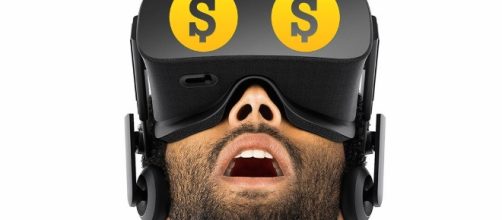The world of virtual reality headsets is expanding so rapidly, that not even the former leader of the pack, Facebook's oculus, can keep up. Facebook, who owns Oculus VR, has admitted that consumers may just not be willing to cough up the $599 for the Rift headset, and an additional $199 for the Touch controls.
Facebook's Oculus now $100 cheaper
The enthusiasm of billionaire investor and CEO, Mark Zuckerberg, once secured the Oculus as the frontrunner in the race to expose VR headsets to the mass market. But after recent reports of Oculus promotional pop-ups closing by the hundreds seem to indicate that enthusiasm is not enough to make consumers purchase a product.
It also has to suit the pocket.
Executives at Facebook are hoping that a reduction of $100 in the Oculus Rift and Touch motion controller might attract more buyers. The Rift will now cost $499, while the Touch will set you back $99. You could also just grab both for $598.
VR technology is relatively new, and as such Zuckerberg believes that the development in this industry requires billions of dollars and long-term investment, perhaps even another 10 years.
The Oculus also has to battle it out with competition in the market. Cheaper VR headsets produced by highly reputable companies like Google, HTC, and Sony are raising the stakes by delivering high-quality hardware with what some have called superior software.
Analysts aren't convinced that a drop in price will necessarily result in increased demand. They believe that it essentially comes down to the quality of the hardware and software. While consumers might eventually end up getting what they've paid for, Facebook might do well to remember that VR headsets are still considered to be luxury items and it may be some time yet before the masses will be able to buy into the VR market.
Ongoing legal woes for Oculus
To add insult to injury, ZeniMax Media has requested an injunction from a federal judge to prevent Facebook's Oculus from using its code in headsets. A $500 million figure was awarded to ZeniMax Media after they won a case against Oculus for making use of unlicensed copies of the video game publisher's code. If they are granted the injunction, it could deal another severe blow to Oculus as customers will be limited in their choice of games on the device.

